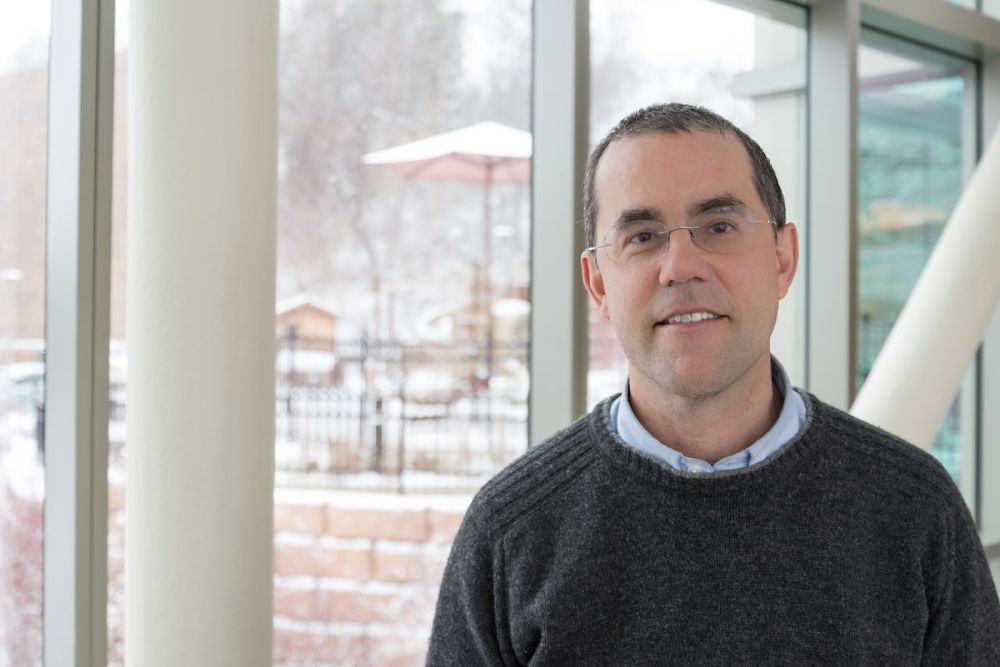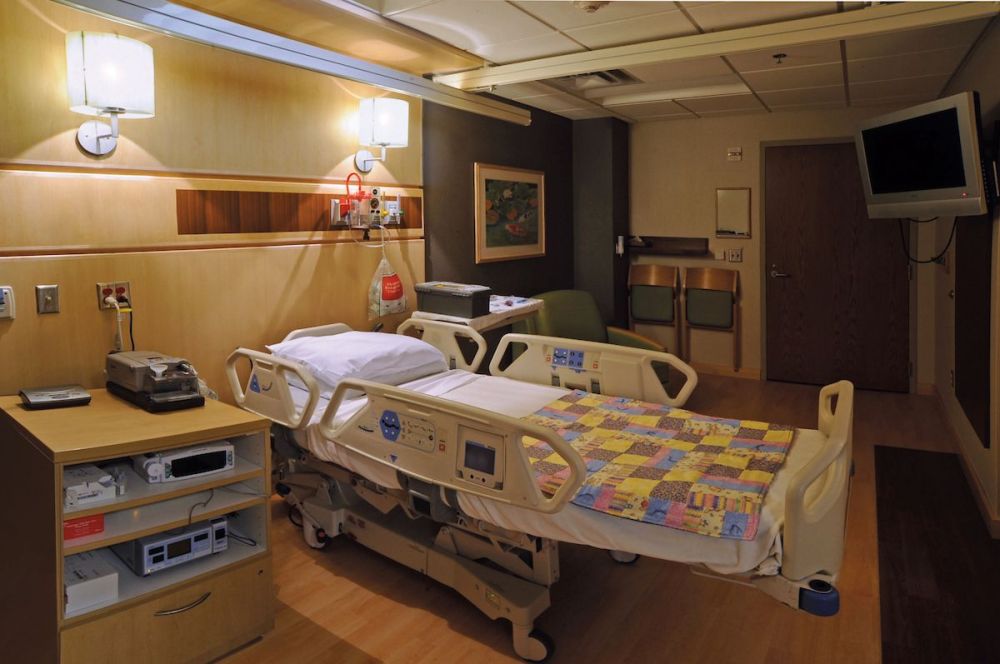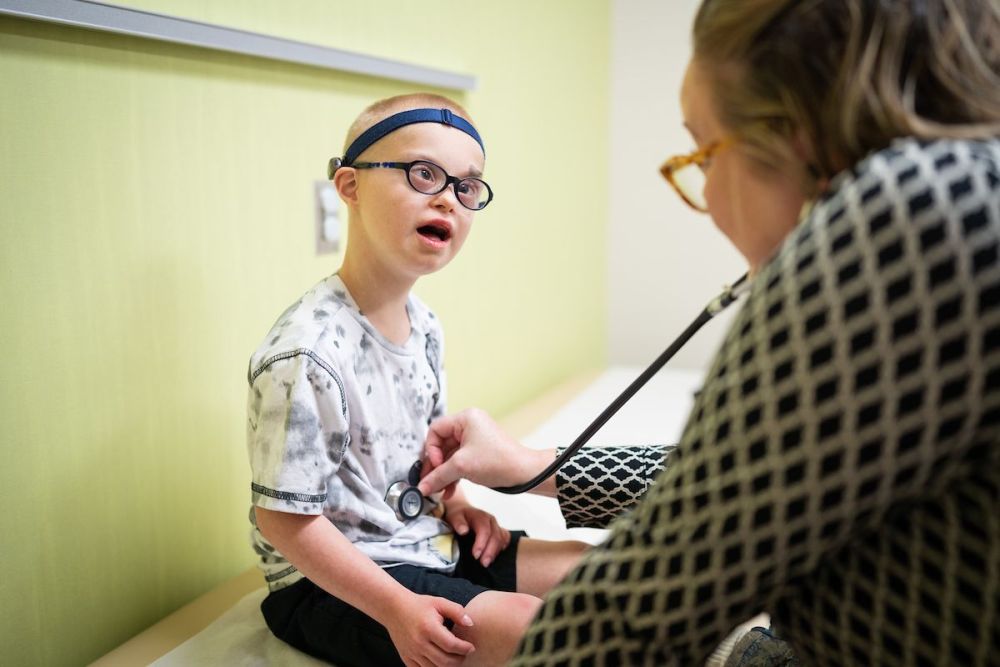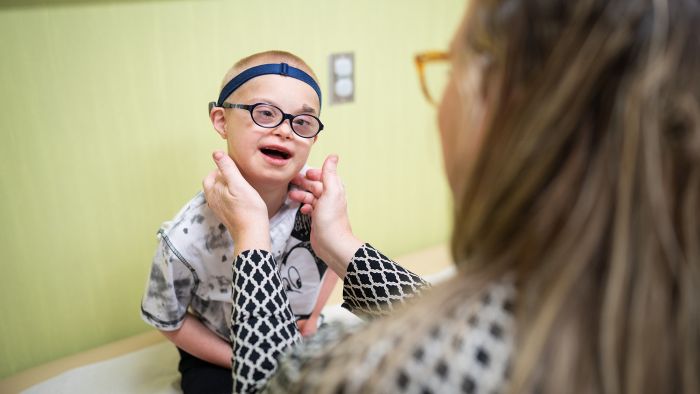The Gillette Children’s Sleep Health Clinic wants families of children who have Down syndrome to know they have resources to help with sleep concerns.
“There are two areas of stress that families are dealing with when it comes to good sleep and Down syndrome,” Gillette sleep medicine specialist, John Garcia, MD, says.
“The first is obstructive sleep apnea and the second is insomnia,” Dr. Garcia explains. “Our expert sleep medicine team can help with both and provide care for other sleep concerns.”
Down syndrome is the most common chromosomal condition in the United States. It occurs when a person is born with an extra chromosome known as chromosome 21. Chromosome 21 changes how a baby’s brain and body develop over time.

Gillette Children's sleep medicine specialist, John Garcia, MD, and his team can help children who have Down syndrome get better rest.
New treatment for sleep apnea and Down syndrome
Gillette is taking steps to help teens who have Down syndrome and Obstructive Sleep Apnea (OSA) sleep better at night. Gillette is one of the first healthcare facilities in the Twin Cities metro area to offer the Inspire Implant to improve quality of life for Down syndrome pediatric patients aged 13 and older.
One of the current treatments for people with obstructive sleep apnea, a continuous positive air pressure (CPAP) mask, may not be ideal for people who have Down syndrome. That's because the CPAP mask requires people to wear it over the nose so it can provide a puff of air into the throat, relieving obstructions so the airway won’t collapse.
“People who have Down syndrome simply do not adhere to CPAP as well, “Dr. Garcia says. “The Food and Drug Administration (FDA) has recently authorized the hypoglossal nerve stimulator for persons with Down syndrome as young as 13 years old.”
According to the National Institutes of Health, hypoglossal nerve stimulation (HGNS) is a sleep apnea treatment involving an implanted medical device that works by stimulating the hypoglossal nerve in a rhythm synchronized with the patient’s breathing. This stimulation helps to keep the person’s airway clear during sleep.
People who have Down syndrome often have decreased muscle tone in the genioglossus muscle, one of several muscles stimulated by the hypoglossal nerve. This results in the tongue retracting back into the throat during sleep and obstructing the airway and this can reduce oxygen levels in the body.
New insomnia medications
Dr. Garcia reports many people who have Down syndrome often have issues with insomnia.
According to the American Academy of Sleep Medicine, children with Down syndrome might sleep poorly, with more fragmented sleep and frequent awakenings compared to typically developing children.
Dr. Garcia says it’s important for families to know that there is help to improve sleep and to make sure children can be as well-rested as possible.
“We have old and new medications that can help with insomnia,” Dr. Garcia says. “Tried and true medications like trazodone, doxepin, clonidine, and hydroxyzine are often effective. Survorexant may help with insomnia; children with all types of developmental disabilities have the most difficulty staying asleep; they wake up in the middle of the night.”

The American Academy of Sleep Medicine (AASM) reports the Gillette Children's Sleep Health Clinic is one of the most well-run sleep labs its surveyor has ever reviewed.
Gillette has the "gold standard" in sleep programs
The first step for families struggling with sleep issues is to talk to a sleep doctor who can help decide whether a medication, a sleep study or other therapies are indicated.
“When a parent notices their child chronically working harder to breath, having breathing pauses, snoring persistently, waking more frequently for unexplained reasons or sleeping more during the day, that’s a sign that this child should have their sleep evaluated,” Dr. Garcia suggests.
If it is determined a sleep study is needed, the patient would usually come to the Gillette Phalen Clinic in St. Paul, MN. Unlike sleep clinics serving adults, the program at Gillette provides each patient with their own sleep technologist to monitor them. (Most laboratories service adult patients have one technologist for every two patients.) A parent or caregiver may sleep in the room with the patient or choose to sleep in a nearby area.
The American Academy of Sleep Medicine (AASM) reports the Gillette Children's Sleep Health Clinic is one of the most well-run sleep labs its surveyor has ever reviewed.
The AASM awarded Gillette a five-year re-accreditation which demonstrates Gillette’s commitment to high quality, patient-centered care. Gillette has one of the nation’s only sleep medicine programs specifically designed for people who have disabilities or other complex health conditions.
Dr. Garcia says this special patient population makes Gillette different from other sleep clinics. “Simply put, our staff has to work harder and care more tenderly. Children with developmental disabilities pull off their electrographic sleep leads more frequently, are at more risk for falls and have a variety of unpredictable behaviors,” Dr. Garcia reports. “You name a stressor and the Gillette sleep techs have encountered it.”

Peter has an appointment with Gillette APP Heidi Davis. He receives a variety of care connected to Down syndrome at Gillette Children's.
The reward of rest
Dr. Garcia says helping families is incredibly rewarding.
“Families give us their trust. In return, our team provides medical care and treatment,” Dr. Garcia says. “Often a family will come to us having struggled with a child’s sleep disorder for years. They believe that’s just how life is. The good news is that it doesn’t have to be that way.”
To make a sleep or virtual care appointment at Gillette please call 651-290-8707.
Get Gillette Stories in your inbox!
Stay “in the know” with our Gillette Stories! Receive the latest stories and news from Gillette delivered straight to your inbox..
 Home Page
Home Page



